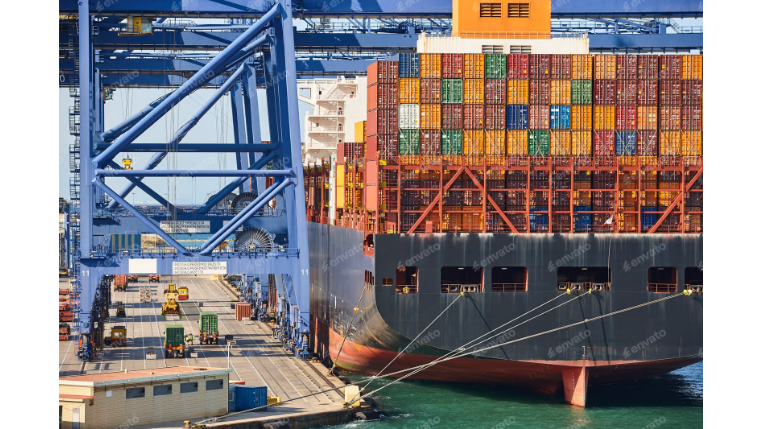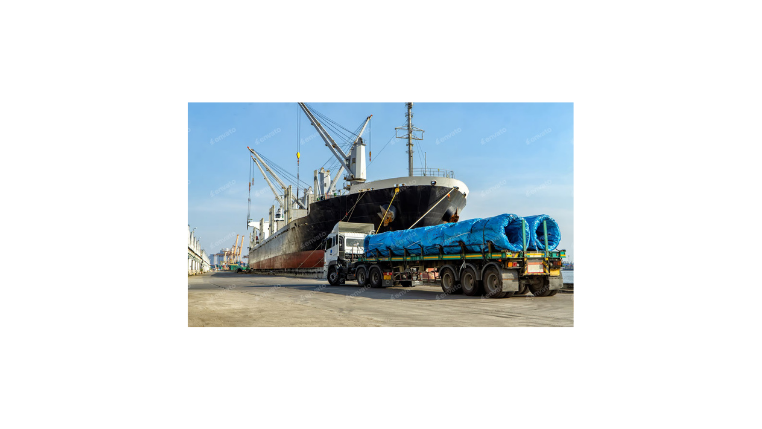In the global business landscape, the terms logistics and supply chain management are frequently used as if they were interchangeable. While they are indeed deeply connected and interdependent, they represent two distinct concepts with different scopes and objectives. A common analogy is that logistics is a crucial part of a puzzle, while supply chain management is the process of putting the entire puzzle together. Understanding this clear distinction is vital for any company that aims to optimize its operations, reduce costs, and gain a sustainable competitive advantage.
This guide will provide a clear, side-by-side comparison of the two concepts, explaining their individual functions and illustrating how they work together to create a seamless and efficient business ecosystem.
What Is Logistics?
Logistics is the process of planning, implementing, and controlling the efficient, effective forward and reverse flow and storage of goods, services, and related information between the point of origin and the point of consumption. Think of logistics as the tactical, operational function of a business. Its primary goal is to meet customer demand in a timely and cost-effective manner.
The key functions within logistics include:
- Transportation: Managing the physical movement of goods via air, sea, rail, and road. This is the most visible part of logistics and a key service provided by companies like Modaltrans.
- Warehousing: The storage and management of inventory at various points in the distribution network.
- Inventory Management: Ensuring the right amount of stock is available at the right time and place to meet customer demand without excess cost.
- Packaging and Materials Handling: The physical processes involved in preparing and moving goods within a facility and for transport.
- Fleet Management: The maintenance and operation of a company's transport vehicles.
In essence, logistics is concerned with the flow of goods. It is a focused, tactical discipline that ensures the right product reaches the right customer at the right time. For a deeper definition, the Council of Supply Chain Management Professionals (CSCMP) provides a foundational perspective.
What Is Supply Chain Management (SCM)?
Supply chain management (SCM) is a much broader, more strategic concept. It encompasses the entire network of businesses and activities involved in delivering a product or service to a customer. This includes everything from the sourcing of raw materials from a supplier and manufacturing to the logistics, distribution, and final delivery to the end-user.
SCM is a strategic discipline that seeks to optimize the entire process for maximum efficiency, value, and competitive advantage. The key functions of SCM include:
- Sourcing and Procurement: Finding and managing suppliers of raw materials or components.
- Manufacturing and Production: The process of converting raw materials into finished goods.
- Strategic Planning: The overall design and management of the supply chain network to align with business goals.
- Collaboration: Working closely with all partners—suppliers, manufacturers, and logistics providers—to ensure a seamless flow of information and goods.
- Customer Relations: Managing customer interactions and ensuring their needs are met, from order placement to post-delivery support.
In contrast to logistics, SCM is concerned with the entire ecosystem. It is a holistic framework that integrates all these functions to create a cohesive and valuable system.
The Relationship: Logistics is Part of SCM
The most important takeaway from this comparison is that logistics is a crucial function within the broader framework of supply chain management. It is a piece of the puzzle, but not the entire puzzle itself.
- Logistics focuses on the efficient movement and storage of goods.
- SCM focuses on the bigger picture: synchronizing and integrating all the processes and partners in the network to create a seamless, value-driven system.
A strong logistics network is essential for a healthy supply chain, but a truly successful business understands the strategic context of its logistics operations. For instance, an SCM strategy might involve sourcing materials from a new, cheaper supplier, but it's the logistics function that determines the best way to transport those materials to the factory. SCM defines the "what" and the "why," while logistics executes the "how."
The Rise of Integration: Blurring the Lines
The distinction between logistics and SCM has become even more critical with the rise of new models like Fourth-Party Logistics (4PL). While a Third-Party Logistics (3PL) provider typically handles a specific function like transportation or warehousing, a 4PL acts as a strategic partner that manages the client's entire supply chain—including all of its logistics functions. This makes the 4PL provider a key player in the SCM ecosystem, reinforcing that logistics is a vital, but distinct, part of the larger supply chain. This is a topic that business publications like Forbes and Investopedia frequently cover.
Conclusion
In conclusion, while the terms logistics and supply chain management are often used interchangeably, they represent two different levels of a company's operations. Logistics is the tactical, operational function of moving goods, while SCM is the overarching, strategic framework that governs the entire network of activities. A robust and efficient supply chain relies on a strong logistics network, but a truly successful business understands the difference and uses both to achieve its strategic goals.










